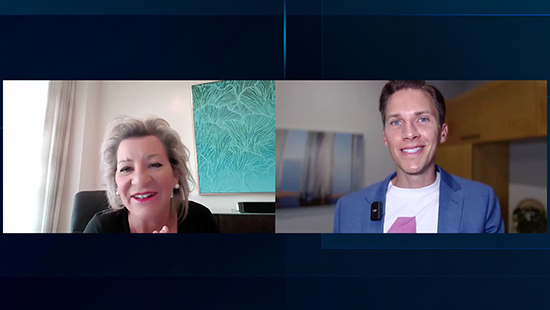Unlocking Your Potential: Lessons in Leadership and Influence

Unlocking Your Potential: Lessons in Leadership and Influence
March 12, 2025
Wednesday 1:00 p.m.-2:00 p.m. ET
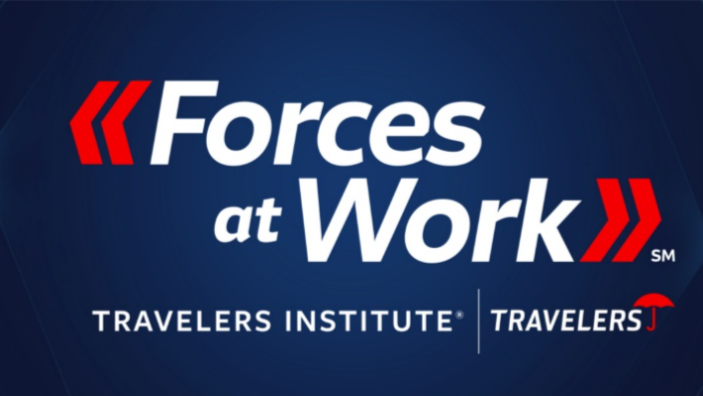
What is influence and how do we build more of it? Those are the questions behind Laura Cox Kaplan’s weekly podcast, She Said/She Said. Laura joined us as we celebrated Women’s History Month to share career and leadership lessons learned from the hundreds of leaders she’s interviewed since she started her podcast seven years ago. From embracing different viewpoints and building resilience to turning failure into growth and having greater impact, she shared insights from entrepreneurs, C-suiters and more. Watch the replay for strategies, lessons and inspiration.
Please note: Due to the nature of the replays, survey and chat features mentioned in the webinar recordings below are no longer active.
Watch webinar replay
[MUSIC PLAYING]
(DESCRIPTION)
Text: Wednesdays with Woodward (registered trademark) Webinar Series.
A laptop on a desk, with a red coffee mug and a small potted plant on either side. Text: Travelers Institute (registered trademark). Travelers. 15 Years. Joan Woodward appears in a video call at the top right-hand corner of the screen.
(SPEECH)
JOAN WOODWARD: Hi, there. Good afternoon, everyone, and thank you so much for joining us. I'm Joan Woodward, President of the Travelers Institute, and I'm thrilled to be with you here today. Welcome to our webinar series. Thanks for joining.
(DESCRIPTION)
Text: About Travelers Institute (registered trademark) Webinars. The Wednesdays with Woodward (registered trademark) educational webinar series is presented by the Travelers Institute, the public policy division of Travelers. This program is offered for informational and educational purposes only. You should consult with your financial, legal, insurance or other advisors about any practices suggested by this program. Please note that this session is being recorded and may be used as Travelers deems appropriate. Travelers Institute (registered trademark). Travelers.
(SPEECH)
Before we get started, I'd like to share our disclaimer about today's program.
(DESCRIPTION)
Text: Wednesdays with Woodward (registered trademark) Webinar Series. Unlocking Your Potential: Lessons in Leadership and Influence. Logos. Travelers Institute (registered trademark). Travelers. 15 Years. Insurance Association of Connecticut. National African American Insurance Association. Connecticut Business & Industry Association. Master's in Financial Technology (FinTech) Program at the University of Connecticut School of Business. MetroHartford Alliance.
(SPEECH)
I'd also like to thank our webinar partners for today, the National African American Insurance Association, the Insurance Association of Connecticut, the CBIA, the Master's in FinTech Program at UConn and the MetroHartford Alliance. Thank you, all.
(DESCRIPTION)
Text: Forces at Work (service mark). Travelers Institute (registered trademark). Travelers.
(SPEECH)
Today's session is part of a brand-new initiative at the Travelers Institute called Forces at Work.
(DESCRIPTION)
A bullet point list appears one point at a time. Text: Risk Management and Insurance. The Labor Market. Leadership and Management. Talent and Development. Employee Well-Being.
(SPEECH)
We launched this back in January with the goal of helping us all to navigate the modern-day workforce and workplace and the ever-evolving issues that we face as leaders within our organization.
This initiative was born out of your direct feedback. In surveys, we asked what you're interested in and what topics do you want us to cover in these webinars?
So topics we're going to cover in Forces at Work include mental health, leading and managing through times of extreme change, which it sounds like we're in today's world, attracting the next generation of talent, not only attracting them, but retaining them, retraining them so they stay with your organization. And then also ways to lead healthier lives so we're able to bring our best selves to work and to our families.
(DESCRIPTION)
Text: Forces at Work (service mark). Travelers Institute (registered trademark). Travelers. A QR code. The cover of a publication titled Investing in Mental Well-Being: A Guide for Employers.
(SPEECH)
We kicked off our programming with a white paper, Investing in Mental Well-Being, A Guide for Employers and Others. We'll drop the link in the chat, so we hope you'll check out that white paper. It has lots of great practical things you could do today in the workplace.
And with that, let's get started.
(DESCRIPTION)
Text: Speakers. Pictures, names and titles of two women. Text: Joan Woodward, Executive Vice President, Public Policy; President, Travelers Institute, Travelers. Laura Cox Kaplan, Host and Creator, She Said slash She Said, Media & Podcast.
(SPEECH)
Today, also in honor of Women's History Month, I am thrilled to be joined by my friend and former Capitol Hill colleague, Laura Cox Kaplan. Laura is the creator of She Said/She Said, a podcast and multimedia platform for women who are seeking insight and inspiration, and our male colleagues as well.
Laura started the podcast a little more than seven years ago and has logged more than 320 episodes. Laura, it sounds like you had done about triple what I've done here on our webinar series, so good for you in seven years. We'll get to that in a minute on her podcast. But first, a little about her background.
Laura's 30-year career has spanned some of the highest institutions in Washington, D.C. Laura and I worked together as Senate staffers way back when, in the 1990s, Laura as a press secretary in the Senate for several senators of note, and I at the Senate Finance Committee.
After her time on Capitol Hill, Laura worked in senior positions at the U.S. Department of Treasury and the U.S. Securities and Exchange Commission, the SEC. She then spent 10 years in executive management and teams of global professional services firm PricewaterhouseCoopers, PwC, where she coordinated government affairs globally and strategies in more than 150 countries. That sounds exhausting, Laura, I have to say.
In addition to that, she's a corporate and nonprofit board member and adviser, author, adjunct professor also at American University. Laura, welcome. You know I love listening to your inspiring podcast.
(DESCRIPTION)
Laura and Joan appear in a split screen on the video call.
(SPEECH)
So first of all, tell us about She Said/She Said, which, by the way, folks, we're putting that link into the podcast in the chat here. You've had an amazing career. You were working at a huge corporate office and on Capitol Hill. So what made you decide to switch gears and start this podcast?
LAURA COX KAPLAN: Joan, first of all, thank you so much for having me. I am absolutely thrilled to be here. I love what you and your team have created with your podcast or your, actually, webinar series, I guess we're calling it. But it's also a podcast and has all these different dimensions.
And I love that you're bringing folks together in this way, so I applaud you for that. I will tell you, 300 episodes goes by like that, so the next thing you know, you'll ultimately be there.
So anyway, thank you so much for having me. You asked me about why She Said/She Said. And I want to back up a little bit to tell you a bit about my story and why I ultimately left a perfectly good corporate job where people were scratching their heads saying, wait a minute, what? You're a partner, and you're leaving and you're not quite sure what you want to do next? [LAUGHS] I said, exactly. That's exactly right.
I think a lot of people face this challenge that you ultimately work your way up, and you land what you think is going to be your dream job. And in fact, it is for a period of time, right? But then you find that as you change and evolve and your priorities shift and your interests maybe shift that maybe there are other things in your life that you think, I really want to pursue this other thing.
And I began to have this sort of nagging little voice saying to me, maybe there's something else out there for you or something else that you should be doing. And I ignored it for a period of a couple of years until I realized that I really was probably not in the place that I needed to be.
And it was extremely hard, because there were so many things that I had loved about the job, that I still loved, my colleagues first and foremost among them. I loved the people that I worked with, loved the issues that I worked on. But I'm like, I'm missing something. And I wanted more autonomy, and my kids were getting bigger. And there were just so many different things that I thought, I really want to create something different.
So I quit with no job. And this was well before the idea of the podcast came along. And I started teaching as an adjunct professor at American University, because while I was at PwC, in addition to my public policy and government and regulatory affairs responsibilities, I was also working a lot on women's leadership development.
And I kept bumping into the same issues over and over and over again, things like I would hear in meetings, well, we can't promote her because she can't take feedback, or she doesn't speak up enough in meetings. We never hear her point of view. Or it was sort of stuff like that that I kept hearing over and over. And I would say, but wait. Why? [LAUGHS] Why is this happening?
And so I started studying this, and I thought, you know, this is interesting. There's a lot of interesting data and information that would yield itself to putting together a course for young women. So I designed one, started teaching it at American University, started giving some speeches about what I was finding.
And a friend of mine called me up after one of these speeches, and she said, you know, I don't know if you've thought about this. I know you're thinking about a blog and all these various things in terms of how you're going to build out this portfolio of your life post PwC. But what about a podcast?
And this was 2017, and podcasting was still kind of new. I'm sure a lot of your listeners were probably already tuned in. Most of my friends weren't, and that included me. [LAUGHS] I had never actually listened to a podcast at that point.
And my friend said, I think this would be a good platform for you. And I had a background in journalism going way back to both my-- I had an undergraduate and a graduate degree in broadcast journalism, even though I never practiced as a journalist. And she said, this would be a great way to use those particular skills and marry those up with all these women in your network who you could bring on and have these conversations with.
So she connected me with somebody to help me create the back office function of this, and we launched. And over the course of the last seven-plus years, we have talked to just so many different women.
And the purpose and the goal of She Said/She Said has really evolved. It went from being just conversations that would be interesting and inspirational to actually having a point of view and providing hopefully some real clear takeaways from each conversation, that you actually get maybe a how she did that, or three things that you'll learn from this episode.
Ideally, if I'm doing my job, you're getting something that's tactical, that's practical and that hopefully is inspirational as well. I realize that's a long-winded answer to your question, but that gives your audience a little bit of background in terms of my own pivot story.
JOAN WOODWARD: No, it's fantastic. And it's so scary to think that you left a corporate job with no job, and--
LAURA COX KAPLAN: [LAUGHS]
JOAN WOODWARD: --your friends and your bosses. And I'm sure people would say that to me, so I can feel you on that one. Who's your audience? Is it all women? Are men welcome? I mean, I'm sure there's a lot of men out there who would love to be helping women in the workplace, and they just want to know what to do to help women and other diverse candidates. So who is your audience, and how often do you do your podcast?
LAURA COX KAPLAN: Yeah. Well, listen, we're open to anyone. Everyone from my 15-year-old daughter to my almost 80-year-old mother listens to my podcast, as does my father, who's also 80 years old. It is-- the content really is developed with women specifically in mind.
But to your point, Joan, it is, I think, information that's really helpful for men who are working with, who love, who work alongside women every day, because there are some real differences in how we tend to face challenges and the world and encounter obstacles and difficulties. I don't want to overstate that, because we're all different as individuals. But generally speaking, there are some real differences in the way that we face challenges, or maybe the way in which we plow through or think about or maybe internalize those challenges.
And so my content is really built around how I think women typically respond to challenges and the types of challenges that we encounter, the way that we deal with pivots in our lives, everything from work-life balance to the identity that we tend to attach to our various roles at different points in time. And I think really spending time thinking about the fact that the most constant issue that all of us face, men and women, is change, and really embracing this idea of change and being intentional about the changes that are likely to occur.
But it's open to everybody, and I welcome everybody. As I often say, I love men. I'm married to one. I gave birth to one. My dad's also a great guy. I've got a lot of male friends. [LAUGHS] But this content really is about some of the dynamics that I think are unique to women.
JOAN WOODWARD: OK, great. So what were your favorite or your most memorable interviews over the last seven years?
LAURA COX KAPLAN: It's a hard question, Joan, because I've just recorded my 323rd, and so the ones that are top of mind that I've recorded most recently tend to stand out. But I've talked to people as diverse as Hugh Hefner's daughter, Christie, who is still the longest serving public company CEO, I believe. She served as a public company CEO for at least 20 years, so I believe she still holds the record, which is so interesting.
All the way to Mother Teresa's lawyer. A friend of mine named Jim Towey, who has the honorable distinction of being the first man that I've actually hosted on She Said/She Said as part of our Women's History Month series. I've talked to behavioral scientists, to academics, to authors, to entrepreneurs, to teachers, to life coaches, to-- I mean, and everything in between. It's just such an interesting mix.
And I think that the things that I love the most about it that I oftentimes find so interesting is that a lot of times, the people that maybe have a more typical story tend to be the ones that will offer some of the richest advice or the most relatable advice, which I think is interesting. Sometimes the more high-profile people, because folks sort of know their journeys a little bit better, are less surprising and less interesting ultimately than that person who did something really cool.
I had a woman on who is now an executive coach. This was a couple episodes ago. And her name is Shunta Grant, and she started out as a lawyer, but she realized that she began bumping into that whole work-life challenge where she just simply couldn't navigate the demands of her legal career and take care of her daughter.
And she would find herself driving-- her husband would be driving, and they'd be in the car going on vacation, and she'd be hiding under a blanket doing a conference call. I'm sure people on this Zoom call have been in that very same experience. And she was like, this is not worth it. What am I doing? How am I spending my time?
So she quit, and she started embracing a hobby. She was making hair bows for her daughter, which I just think is so interesting to go from a legal career where you're billing by the hour to making a craft, essentially.
She developed it as a company, ended up selling it, but ultimately found her path as an executive coach focused specifically on time management and prioritization in particular. And recognizing that there is a season in your life when you can have the legal career and do all the things, and there's a season in your life when that may or may not make as much sense.
So it's conversations like that that I think get to so much of what connects us, so many of the challenges that we're still dealing with. If these things like work-life balance were easy, we would have already solved them. The reality is that they're different based on the particular challenges that a person is experiencing at a given time.
JOAN WOODWARD: OK. One more question on your podcast, because I want to get to-- and I know a lot of my audience, they were texting me and saying, what I'm really interested to learn about is influence. And how do you influence when you don't have a title or you don't have the power to influence in the workplace, or maybe at home? So I want to get to that. But first, what would be your dream interview? Who haven't you interviewed, and who would you want to and why?
LAURA COX KAPLAN: Yeah. It's a great question, and I thought about that a lot as you asked it. But what I-- [LAUGHS] just to be completely candid, sometimes my biggest-get interviews are the least-- they are the most disappointing, because either the person's not as interesting as I thought they would be, or maybe not as able to connect with my audience as the person who really wants the opportunity to be on the podcast.
And so as I thought about it, there are lots of people that I would love to have interviewed like Queen Elizabeth, obviously Mother Teresa, although I've talked to her lawyer, so I feel like I have the next best thing. But I really like to think about having people on who have a point of view, who have plowed through some particular challenge, who really are oriented toward wanting to teach and share my audience something that she has learned.
So I tend to not think about, who is that big get? Because the whole purpose of it is really about, what can we share as a community and with each other? How can we learn from each other? And so I'm kind of open to anybody who's willing to come on and lend their expertise and provide value to my audience.
JOAN WOODWARD: OK, sounds good to me. I agree with that. I've had a lot of big-get people, big-name people. When you have a big name, everyone wants to tune in and just get--
LAURA COX KAPLAN: Right. Right.
JOAN WOODWARD: But sometimes the big-name people don't share anything that is not already in the public domain, so I agree with you on that. OK, let's get to influence, because you talk a lot about influence. And I know especially younger women have a hard time. You may not have the title, as I said, or you may not have the position to influence decision-making or outcomes in your job or at home. So what is influence, first of all? And why does it matter to have the ability to influence others?
LAURA COX KAPLAN: Yeah. I think it's not a well-understood concept. I think it's one of those things where we say, we know it when we see it. Obviously, the people that have the power, have the job, have the position do also tend to have influence.
But to your point, and the way it impacts the vast majority of people is what you do to build and create influence in order to be seen, to get your point across, for people to want to work with you, for people to want to hire you for that next job. I'm thinking about influence from the standpoint that creates that connectivity between us and the people that are the next rung in the ladder for us.
And I think with influence in particular, there are some things that you can do to build it, and we talk about this on the podcast all the time. But one of the ways that I like to think about influence is sometimes the habits we engage in that take away from our credibility, our influence, our-- the way that we're perceived. And the habits that we may not even know that we're engaged in can oftentimes tend to be the drivers or the difference between whether we're really building real influence or not.
And some of those things are things like how we're approaching particular challenges. What is our mindset as it relates to maybe a failure or a setback, for example? Are we internalizing that failure or setback to the point where it kind of undermines our ability to move forward? That can be a habit. That's a correctable thing, something that we can recognize, create some self-awareness and reconstruct that, so that we paint a different picture for ourselves, that we can craft a different narrative.
And I think that's just to give you one example, but I think it's a really good one. Because ultimately, I think influence starts with how we think about ourselves, like the capabilities that we're bringing to the table. And how we ultimately look at that is really, I think, a key to our ability to create influence, and certainly to influence people when we may be the most junior person in the room.
How prepared are we for meetings, for example? That's a tactical thing, but it absolutely can undermine your confidence and therefore your influence, your desire to want to speak up or your-- the feeling that you have something to add. If you're not prepared for the experience, then you're probably not going to be leaning into as much influence as you could be leaning into. So there's a confidence component, and there's an influence component, which I feel like are directly related.
JOAN WOODWARD: Good. That's really good stuff. I like doing your homework to make sure you know exactly every detail of what the meeting's going to be about is like table stakes. You have to do that, right? You can't just ignore that. OK. So let me ask you this question. How does understanding your particular personal story shape your influence?
LAURA COX KAPLAN: That's a great question. Yeah. I absolutely love that because I think sometimes, as I said before, if you have a setback, a failure, something doesn't go quite the way that you wanted it to- and it could be something little or it could be something big.
And I think for women in particular, sometimes it's those micro things that we don't handle quite as well as we thought we could or should, that we can internalize, and it becomes part of our personal narrative. It may be stuff that happened years ago. It may be stuff that's sort of accumulated over time. But you begin to paint a picture of yourself one way with that particular narrative in mind that can cause you to get stuck in patterns of thinking that are unhelpful.
And that's where internalizing your failure as opposed to thinking about, OK, yeah, that didn't go quite as well as I would have liked. What could I have done differently? Or, what's the benefit? What did I actually learn from this situation? Take the learning, get rid of the part that you didn't do so well, and move on, and just let it go.
But I think that piece is a really important component. And I think for an awful lot of people, when you get attached to your story-- this is who I am, this is whatever, good, bad or otherwise-- sometimes there can be a reluctancy to edit that story, to tweak it so that it works for the next opportunity.
And this is really critical if you're in a situation where you're perhaps contemplating your next job or position. Maybe you've been laid off. Maybe you're facing a situation where it's a surprise pivot that you're having to make. And because you were laid off or maybe fired, you feel like a failure, right? You've internalized this failure.
OK, how can you take the experience and really re-craft this story so that you begin to lay the groundwork for whatever that next opportunity might be? And begin to look backwards and see the through line of your journey. To say, OK, here's some pieces that maybe I haven't focused as much on, but it's interesting how these different components of my life connect the dots.
For me, story is a big part of that. Influence was a big part of that because, Joan, as you said earlier, you and I worked on Capitol Hill, building influence around concepts, policies. I was communicating them. You were in more of a policy role. But we were building influence for those ideas.
And so this concept of influence has always been part of my story. And then as I moved on into more-- into bigger jobs and into the corporate world, it was getting buy-in from colleagues who, in many cases, were more tenured than I was. Even if I had a big position, which I did, there were colleagues, other partners who had been with the firm much longer than I had been.
And so it wasn't a matter of saying, OK, this is what we're going to do. It was a matter of presenting my case, backing it up, being prepared, really listening to what their objections might be and figuring out ways where we could address those objections.
But I think preparation is a big part of that. Listening is a big part of that. Being curious about where the other person is coming from, I think all those pieces ultimately come into play.
And I began to see this through line of these pieces that fit together. And I thought, you know, I've never really seen anybody or heard anybody talk about influence as a component of women's leadership development.
JOAN WOODWARD: I think that's great. Another word I'm going to use is credibility. I think it's important, too, for women and anyone young in their career, building their career to be credible. And so building that credibility over time takes time, right? You're not going to be credible overnight, especially if you had a misstep or a mistake and people view you as not credible or not reliable. And so building credibility to influence, I think, is also another way to, in my mind, think about and respect-- people respecting your opinion.
And seeking your opinion, how do you ask-- how do you have people seek your opinion? That's another thing that I think a lot of people want to give their opinion, but there's only a few people in the room that I actually want their opinion, maybe, on a particular matter. So how do you do that? That seems hard.
LAURA COX KAPLAN: Yeah. No, I think you're exactly right. And I think listening and being curious, being prepared, really engaging with someone to understand their point of view. I think all of those components help you build the influence that ultimately is likely to yield itself with someone that wants to work with you.
Because that's what you're describing, right? You're describing the colleague that everybody goes to. You want to bounce an idea off of him or her because they're thoughtful, and they're going to give you the time. And it's about helping you and contributing and sharing their knowledge. It's all these pieces that ultimately, I think it's why it's kind of a hard concept to explain or describe, because there's all these different components to it.
I would say, too, back to something that you were-- I'm not sure if you said it or I said it, but one of us mentioned feedback as well. And I think, too, the feedback component is a really important one, whether you're trying to build support for an idea, you want to get buy-in and input, all those sorts of things. But orienting yourself in order to hear feedback that's not positive is a really important thing so that you take the emotion out of it and make it less about you and more about curiosity, more about, OK, what can I learn from this?
And if we can learn to prepare for those moments where we know we're likely to get pushback-- call it constructive feedback, call it whatever you want, but let's say it's less than positive. If we can orient our thinking and maybe even plan for those situations in advance to think about, what are the areas where that colleague I'm trying to convince who's being so tough on this issue, what are some areas that he or she is going to want to hear from me in order to address that?
And maybe questions that you have for that person about, why do they hold this position? Or have you ever encountered this before? Ask them for their opinion so that you're really leaning into this idea of, it's both intentional and it's preparation. But it really can go a long way in terms of building those bridges to create more influence.
JOAN WOODWARD: Great. Great. That's great. I said this morning in a meeting, Laura-- you're not going to believe this. I said, I love the great, positive feedback, but give me two or three things we could do better, right? When we're working on this topic or this idea. And that is so valuable to me, and I think to others to hear that.
OK, we're moving on. So that was influence. Now we're going to talk-- I want to talk about mindset, because you talk a lot about mindset. It's not just the power of positive thinking. But as you put it-- I'm going to quote-- "consciously examining the narratives we've constructed." "Consciously examining the narratives we've constructed" for ourselves. Mindset. So talk about that.
LAURA COX KAPLAN: Yeah. So it's a great concept, and I wish it were something that I had developed. It is not. There is a really well-known Stanford professor named Carol Dweck who wrote a fabulous book about-- oh, gosh, probably 20, maybe even more years ago. The book is called Mindset. She's been studying and doing research on this concept of mindset.
And what it is is the way in which you approach challenges or obstacles. Do you look at something that you know is going to be hard as an opportunity to learn and grow, that you automatically know, I'm probably not going to be good at this, but I will get better as I do it? And that is referred to in her literature as a growth mindset.
As opposed to the person who says, I am just the way I am, and it's not going to change, and la, la, la. And that person is engaged in a fixed mindset. I am oversimplifying these concepts a bit, but in the interest of time, that is essentially what we're talking about.
And the reason why this is so important is that when we are not approaching challenges and opportunities with a growth mindset, we can run the risk of creating a narrative in our minds that causes us to stay stuck, and it makes it harder to take those risks. It can hurt our confidence. It can just affect our ability to lean into those real opportunities and those next steps.
And so if you're somebody who's thinking about that next job, that next opportunity, maybe going for that big promotion in the organization that you're in, but you're holding yourself back because you're thinking, OK, well, what if I fail, or I've never done this before? It might-- I mean, I'm probably not going to do well at this. And you're probably right. You probably won't the first rattle out of the box.
But if you look at it from the standpoint of, this is a real opportunity for growth, who can I talk to who can help make me smarter, give me more tools so that I can tackle this challenge differently, really thinking about it proactively, that's what I'm talking about when we talk about mindset.
And I see it come up on this podcast time and time again. I talk to, as I've said before, countless women about their pivots, about doing hard things, about coming out the other side that I think is really interesting.
I'll tell you if we have time, Joan, I'll tell you a little story from one of my older episodes, but it's one that I oftentimes, I think, refer back to, just because I think the lessons in it are so poignant. And I was interviewing a young woman whose name is Brittany Underwood, and she started a social impact jewelry company in Uganda.
But her story begins when she was a student at Southern Methodist University, and her girlfriends and she decided it would be fun to go off on a mission trip to Uganda. And none of them had really thought through what that might entail and how incredibly difficult and maybe life changing this might be. She would be the first to admit that her approach, at least initially, was a little bit frivolous.
She gets there. It was as horrible as you can imagine, just abject poverty. And she was so moved by the experience that she came home and decided, I'm going to raise money and build an orphanage.
So she met these women who were bringing orphans into their homes. They were feeding them at night. They had mats that they would roll out for these children so that they would have a place to sleep. And they were doing it when they barely had enough money to feed themselves and their own children.
So she came back to Dallas and said, I'm going to raise money and build an orphanage. She did that. It was very successful. At the point in which CNN and all the big news cameras were rolling in to talk about what a great success it was, she realized in that moment that her accomplishment was actually the worst thing that she could do, because there was no sustainable engine to keep it open. There was no ability to keep the money coming in other than just sort of constantly fundraising.
So she had to pull the plug on something that everybody else was heralding as a huge success. And this is a young woman at the time. She was probably about 22 years old, so really young. The ability to admit that failure and say, you know what? I'm going to start over.
She went back to school. She brought in several mentors; people who could help her solve this problem. And she ultimately created this social impact jewelry company where she employs the women in Uganda who can work for a living wage, ultimately feed their families, help support their communities themselves. And you have this cycle of impact in a way that you never would have with the orphanage.
And I love that story because there's so many components of-- for a lot of people, the failure would have been enough, and the public failure of all of that, right? I mean, this was broadcast far and wide. And she had to say, you know what? This is not going to work. So I love that story. And I think it illustrates so clearly this idea of mindset and being willing to really embrace failure as an opportunity to learn and make things better.
JOAN WOODWARD: Wow, that's a story. I haven't listened to that podcast. I'm going to go back.
LAURA COX KAPLAN: It's an old one. [LAUGHS]
JOAN WOODWARD: I'm sure I'll find it. OK, I want to pivot because you just celebrated your seven-year anniversary, and you have a podcast where you talked about the lessons learned, seven lessons and a few others that you've learned along the way, and patterns that you found emerging for sustaining that influence. So the first lesson you talk about is that we need to embrace the messy middle. So what do you mean by the messy middle?
LAURA COX KAPLAN: [LAUGHS] The messy middle is the part that most people never see. Everybody sees, like, she's an overnight success. But what they don't see is the messy part that happened before, where you're trying things for the first time. You're stretching yourself. It's uncomfortable. It's messy. You're failing. You're not doing it right. You've got to do it over again or try it a different way. That messiness is part of where the most significant growth comes.
And I don't know about you when you were first starting this platform, but for me, in starting the podcast and practically any other project that I've started where I didn't really have-- I would have a vision for what it should be, but I didn't know exactly what I was doing. It meant I had to try a lot of new things.
And I think for a lot of people, the idea of that, sometimes you get in the messy middle or the part that you're in before you get to the point where it's like, OK, I've figured this out, and you're like, oh my god. What am I doing? Like, this is-- [LAUGHS] I don't know what I'm doing, and it's so uncomfortable. And you so have to stretch in that particular time frame that a lot of people give up at that point.
And the reality is that's really where the real growth and learning comes from. And also, by the way, where your confidence gets the biggest boost. If you can keep it from crushing you, that's really where you build that confidence muscle. It's what keeps you going back. It's what helps you try that next hard thing, and that next hard thing, and that next hard thing.
JOAN WOODWARD: I completely agree with that. And I also think being authentic with others, that you didn't think this was going to be-- this was going to work. You thought it was going to be a failure. It just so happened that ducks fell in the row, and you got lucky along the way. You had an opportunity. You work hard. You have grit.
But sharing your story with others gives others hope that, oh, wow. She wasn't perfect when she was born. She perfected her strategy over many, many, many years, and there was lots of failures along the way. And I think it's important to share that with others who may be struggling. So great. All right, No. 2. You talk about the power of strategic pruning. Strategic pruning. What is this?
LAURA COX KAPLAN: I love this, and this was a topic on a podcast with a woman named Shunta Grant a couple weeks ago where she talks about seasons in life. And strategic pruning basically means recognizing that you can't do it all at the same time, right? That there are certain things-- if you really want to accomplish that big goal, recognizing that you can't do all the things at once. And you have to be really honest with yourself about what can stay and what can go.
And sometimes the things that we have to prune, to use her terminology, are things that we really love. But maybe it's not the top priority at this particular moment in time, so you have to park those things in order to move the ball.
Because the reality is if we're trying to do all of the things at once, nothing really good will happen from that because you're so diffused. It's like the peanut butter example, right? You spread a little bit everywhere, and everybody's hungry. Or Shunta says in our conversation, if you're trying to fill everybody's cup, everybody's going to be thirsty.
And I love that. I love the symbolism of that, because she's exactly right. Whereas if we can be intentional with what needs to happen right now-- what is the most important thing? And maybe park those other two or three-- they're still priorities, but maybe not right at this moment-- so that you can pick them up later or maybe pivot to them at some other season in your life.
I think this is a really important way of thinking about, again, that whole work-life balance question. It's a hard problem to solve because it means we have to make choices. That really is the only answer.
And so I love the idea of being strategic about what we can prune from our life at a given point in time. Can you afford to hire additional help, for example, to take on some of those things that maybe are not the highest and best use of your time, for example? That's what I'm talking about when we talk about strategic pruning.
JOAN WOODWARD: And I also view it as I have a hard time saying no to people. When they say, hey, Joan, can you do this, my default answer is, yes, I'm going to try to do it. I'm going to make it work. But I think saying no is hard for women because we don't want to disappoint, right? We always want to be the one that's going to please people and make sure they feel comfortable.
And I think saying no as a woman, or in her words, pruning or putting on the side, is a really important power to have, and for others to understand why you said no to that. Understanding the reasoning behind that, I think that's important. OK.
LAURA COX KAPLAN: I love that. And I would say, too, maybe it's a not right now, you know? And maybe it is a matter of if it's providing mentorship to people, carving out-- I had a colleague at PwC who did this really consistently and would carve out-- it was certainly a day, maybe two days a month, something like that, where she would devote almost the whole day to mentorship conversations, or several hours during a given Friday.
And she would have her calendar open for anybody who wanted to take advantage of her time, recognizing that she was going to learn from the experiences with these folks, and they were going to learn from her. But it would give her the ability to provide that help without it completely overwhelming her schedule.
Which, as you know, Joan, it can do-- that can happen really easily. You want to be helpful, but you have to-- you sort of prioritize where and how. And I thought that was a really smart way of doing it.
JOAN WOODWARD: Great. Great. That's a great suggestion. OK, here's one that's hard for many of us, including me, especially with social media. So we need to stop comparing ourselves to others. You call this silencing the inner critic or silencing the comparison trap.
This is really hard, right? Especially for younger women, I know some of the social media platforms change the likes and the comments, because if you don't have so many likes, like your friend has so many likes, you're a lesser person than this other person. So how do we stop comparing ourselves to others?
LAURA COX KAPLAN: It is really, really hard. [LAUGHS] And I do think that when you recognize that you're doing that, trying to figure out what those triggers are for yourself is really the first step to take to understand why it is that you might be comparing yourself to that other person.
The next step is to take a step back and think about all the ways in which whatever it is that you're bringing forth into the world is unique to you and try to orient your exposure to maybe that particular person on Instagram or LinkedIn or Facebook, or whatever it happens to be. Or maybe it's a colleague in your office. And instead, think about the aspects of you that are really unique, where that value proposition of what you're bringing to the table is so unique and special.
I think if we can do the homework of creating more self-awareness about our own value proposition, that's a really great way of reorienting our thinking so that we don't fall into this trap. Recognize that she's the only person who can do what she's doing, and you are the only person who can do what you're doing because of the experiences you've had, where you grew up, the mentors you've had, the failures that you've had, even if you don't call them failures. But all of those things that you've learned have created this really beautiful mosaic that makes you unique and special.
And I think it's really important to not only do the work, but to constantly refresh that work. Because I think that we're surrounded by so many perfectly curated images, it can be so easy to fall into this trap, even when we know better, right?
And then if you have some tools at your disposal and you begin to notice, oh, gosh. I'm falling into this trap. I'm listening to that voice in my head, or I'm getting triggered by this person on Instagram who's just too darn perfect. Stop. And go to your toolkit and remind yourself of your own value proposition, right? What is it about the person that's bugging you so much? And try to orient that toward the unique value that you're actually bringing to the world.
JOAN WOODWARD: Great. This is great. Let's move on. Another lesson you talk about is vulnerability. So many times, we see vulnerability as a weakness, but you say we can use it as a power. All right. So how do we turn vulnerability into a power?
LAURA COX KAPLAN: Yeah. I want to be really clear about something, because I think vulnerability and authenticity can sometimes get used together interchangeably and can be sort of confusing to people. And we have seen corporate messages that say, bring your whole self to work, and be your most authentic self. And those are great things up to a point.
The reality is-- and Joan, you've been in the workforce a long time, and so have I. It is really important that we engage strategically in sharing vulnerabilities. And what I mean by that is, think about vulnerability as an opportunity to connect more directly with your team.
So if you're selective about the areas of vulnerability that might benefit your team, where your team can feel engaged, maybe in helping you find the solution to whatever that challenge might be, if you're using it as a tool, it can be a connector in a way that if you show too much vulnerability, it can undermine your credibility as a leader.
I think you have to be very selective, and you have to be very thoughtful and very intentional in how you use this concept of vulnerability. You want to be vulnerable up to a point, but I don't think that means sharing every aspect of your life necessarily in the workplace. It depends, obviously, on the circumstances.
And you have to be both self-aware and also get feedback from people on when that might make the most sense. I do think having outside feedback is really important to help you calibrate that if it's something that you're struggling with.
But I think you and I both know people who maybe have a tendency to share too much, and that is not necessarily helpful. It begins to undercut your credibility from a connection standpoint, and people are not sure that they can trust you. You're just simply too vulnerable. So there's a balance that has to be struck. But I think that's what I'm talking about when I say it can be a really important tool in terms of ultimately connecting us and helping us feel like we're part of a team.
JOAN WOODWARD: Yeah. No, I agree. There are over-sharers and there's under-sharers, and you have to know who you're talking to. And also, just remind each other, we are human, so not everyone has to be alike in how much they share or don't share.
OK, good. Moving on. Next one, reframing failure. So you call this failing forward. Failure hurts. It makes a lot of us want to just give up. So how can failure be our biggest teacher in your words.
LAURA COX KAPLAN: Yeah, we talked about this a couple minutes ago, and I think it's a matter of maybe not calling it failure at all. One of my favorite aspects or ways of thinking about failure is to stop using the word.
If it's something that we tend to learn a lot more from than success, which has certainly been the case with me-- I suspect it's been true for you, Joan, and probably most of your listeners. If you're learning so much from it, that in and of itself is not a failure by definition, right? That's an opportunity to learn and grow. And if you shift your mindset around that, like right in that moment, it can be an opportunity to reframe it and recalibrate it to help tell yourself a different story, craft a different narrative around this idea of failure.
I have a couple of great resources from the podcast that I absolutely love. They are a couple of my favorite episodes. One was with Harvard Business School Professor Amy Edmondson. She wrote a book a year or so-- she's written a bunch of books, but the one that she wrote maybe two years ago is called the Right Kind of Wrong.
And it's all about psycholo-- she's an expert on psychological safety in the workforce. But she talks about the importance of encouraging people to take risks where they will fail but giving them the psychological support in order to help them through that so that you can create more innovation on your team.
Another episode that I think talks about this so brilliantly that I really loved is with Sukhinder Singh Cassidy. She was the CEO of StubHub. She's now gone on to another really high-profile job in the Valley.
But she wrote a book called Choose Possibility. And it's all about planning for failure, actually teaching your team, OK, we're going to go for this, but what are we going to do when it doesn't work?
And it's not a matter of assuming you'll fail. The goal is really about encouraging risk-taking and giving people a built-in safety net so that they know what to do next when that big thing doesn't work. So it's like-- it's the intention of, OK, we're going to go for it, but what are the three things we're going to do if it doesn't work out the way that we had hoped?
And I love that not only in a corporate or work setting, but I love it as it relates to our own personal risk-taking, thinking about, what will you do if you get that negative feedback or if the promotion that you're going for doesn't work out? What's next? What's the next step? What are the next three things you're going to do, right?
And plan for that so that you're not caught flat-footed, or you're caught less flat-footed. Because sometimes for people, the loss of control, that sort of feeling where I’m not sure what to do next is kind of the worst part. Whereas if you have something of a game plan or a strategy for, here's what I'll do if, it just gives you something to fall back on right in that moment.
JOAN WOODWARD: Yeah. And we had a recent webinar on retirement. And a lot of people think, I can't wait to retire, right? And then a lot of people are just dreading retirement and saying, what am I going to do? I filled my life achieving this great success, similar to what you did when you stepped back or stepped aside in your corporate job.
Have a plan B, right? And that's really important. If your plan A doesn't work out, what is your plan B? And be happy with your plan B, right? There's always a plan C, too, if that doesn't work.
OK, we're going to move on because time's short here. Last one I want to talk about is-- I love this one. You're talking about creating ripples of impact. And we recently had Chris Rollins on, and he has a whole story about the ripple effect, which is you drop a pebble in a very calm lake, and the ripple you're causing affects a lot of people. So the importance of sharing your success with others. What is your advice on the ripple effect?
LAURA COX KAPLAN: Yeah. I think sharing your knowledge in an effort to help other people learn from what you have experienced is one of the whole reasons why I wanted to start She Said/She Said podcast in the first place. Not because I have all the answers, but because I have some of the answers. [LAUGHS] And these women that I bring on every week help illuminate challenges in such a thoughtful, interesting way, or maybe give us a different lens or a different perspective, a different vantage point in which to see something that we're struggling with.
So I think it's really important that we share our-- what we've learned, but that we also share other aspects of what we're doing in order to engage and ultimately create those connection points. I think it's one of the most important things.
I think that with a lot of people, the idea of personal branding and talking about your work can make them really uncomfortable. But I think in reality, if you are oriented toward, how can I create personal branding that's around helping someone else? How can I share the speech I gave before the Insurance Agents of America, or whatever it happens to be, and say, these were three really great questions I got from the audience. Have you ever thought about this?
So that you're creating an opportunity for people to be aware of your work. You're creating an opportunity for connection. But you're also creating the opportunity potentially to help people who are reading that post.
And I think that can be a really important way of recalibrating your mindset around not only sharing your work, but also engaging with people and using some of these amazing tools that exist that, Joan, when you and I were coming up in the world, didn't even exist. And I think it's an incredible-- it's an incredible time to be alive and to be working and to be engaging, because we're only limited by our own creativity.
JOAN WOODWARD: Yeah, it's wonderful. And our time, of course.
LAURA COX KAPLAN: Yeah, and our time. Yeah, that too.
JOAN WOODWARD: Time management, as we said. You can say no. It's OK. Let's take some audience questions, because there's just a ton rolling in, and they're all terrific. So a lot coming in around building confidence and taking risks. And I like to say, take a risk on yourself. That's the most important risk.
But how do you build confidence? The imposter syndrome is real out there. A lot of people are asking about that. Do we all go through the imposter syndrome? How do you get over that and overcome self-doubt?
LAURA COX KAPLAN: Yeah. I think anybody who's normal will feel some degree of imposter syndrome. Am I really the right person for the job? How can I plow through this? And I think to me, the most important element of building confidence is through doing, proving to yourself that you can do it by doing it over and over and over again. Not to the point-- and developing that mastery ultimately.
But also, continuing to challenge yourself by doing that next hard thing, that next hard thing, that next hard thing. Making sure that the challenges that you're taking on are things that are going to be a stretch for you, because that's really where you can build your confidence.
But there are some other really interesting tools. I mentioned technology a second ago. There's some other interesting tools that I like to recommend. And I wrote-- I wrote a blog post on this a couple weeks ago about using AI for the purposes of boosting your confidence. And that may sound like kind of a crazy thing to do.
But the reality is these tools are incredible. And if you feed in your bio, your resume, a few details about yourself, and maybe the struggle that you're having and ask one of these AI platforms-- my preference is Claude. I use Google Gemini as well, but those are kind of my two favorites right now. And by the way, the technology's changing so fast, I could have a different answer next week.
But for now, feed that into the AI and ask it, why am I the best person for this particular opportunity? Or, I'm having a real-- I'm having some real second doubts-- or a lot of self-doubt about my capabilities to do X. How might I address those? And use this as an opportunity to essentially have a dialogue with yourself.
Now, taking nothing away from executive coaches, your network, the people around you who I hope that folks are collecting. They have an amazing sounding board or kitchen cabinet or personal board of directors, whatever you want to call it. But the people that you're going to reach out to to get that input, they are also incredibly valuable in helping to boost your confidence in those moments.
But I think all those tools taken together are great ways that when you feel yourself falling into that, ugh, I'm not sure I can do this kind of category, you know when it's coming, right? We all experience this if we're normal.
What's in your toolkit that you're going to immediately go to that helps you boost your confidence? And those are some of the things that I like to use personally.
JOAN WOODWARD: Great. Yeah, go back-- if you haven't read Laura's LinkedIn post on AI and building self-confidence, two things, two phrases I would have never actually put together.
LAURA COX KAPLAN: [LAUGHS]
JOAN WOODWARD: I would never think to go to AI. So you're light years ahead of me with technology and personal development. OK, bunch of questions coming in from the audience on women and identity struggles. Over the years, different seasons in your life, a lot of people do struggle with who they are. That's very real for women who change careers, dial back, maybe take a leave of absence to raise kids.
Or many people in my situation-- I mean, my four adult children are gone, and I'm sitting in a big house alone with my husband sometimes. Talk about the struggle and women and identity. And again, seasons of life have a big place to play as well.
LAURA COX KAPLAN: Yeah. I think this is probably the concept that maybe I understood the very least as I was coming up in the workforce, the idea that I would change and outgrow various roles, or that my identity would shift so dramatically as I would go through these different phases. I just didn't-- I didn't understand that and didn't see it coming.
And as a result, I feel like I was not as well prepared for the big pivot that I made in leaving corporate America and doing something that was much more entrepreneurial and much more of a-- I have a portfolio of things that I work on. In addition to the podcast, I do some other things as well.
But everything changed, right? The colleagues that I was accustomed to seeing every day, getting dressed in a particular way for work looks different now than it did when I was in my corporate job. Like, going into my closet is a whole different experience. I realize that that sounds a little frivolous. It's a very big deal. And when we don't think about it and think about the impact that that will have on us psychologically, it's a very big thing.
I tell this little story to illustrate this point. Right after I left PwC, my husband and I were taking our kids to-- on an overseas trip, and we were going through customs in London. And they give you the card to fill out that has a box for your occupation or your profession.
And for those of us who have worked in Washington and done all these things that don't necessarily fit in a tidy box anyway, I hate the idea of that little box. But I left the box blank. And as we were going through, the customs agent said, oh, miss, you forgot to list your occupation.
And I said, oh, well, I'm a corporate board director, and I have podcasts, la, la, la, la. And I did this, and I did that, la, la, la. And for a minute. Like, 90 seconds I went on and on about my background.
And the lady was-- she was a woman about my age, maybe a little bit older than me. And she was nodding politely. And she said, (BRITISH ACCENT) that's nice, miss. What should we write in the box?
[LAUGHTER]
I said, oh my god, I really have a problem here. And it occurred to me in that moment, there is so much about our identity and coming to terms with that and who we are, how we define success for ourselves at these different points in time that being really self-aware about what is important for you, being aware that you can define success differently in the different seasons, and not being so concerned about what you think other people think or care about whatever it is you're doing at a given moment.
I was way too preoccupied with those sorts of things, certainly initially. And I think it's very liberating when you realize that those things just don't matter, that it's really about you deciding what's most important for you, the people that you care most about at this particular moment in time. I'm not sure if that answers the question but maybe provides some context that might be helpful to somebody.
JOAN WOODWARD: OK, one last audience question. And I can't believe the hour has flown by. This is from Noah Kuchenmeister of First Tech Insurance Services. So, what challenges has remote work created for leaders, managers, and has it affected their ability to create influence and lead their teams?
LAURA COX KAPLAN: Oh, what a great question. Yeah, the short answer is absolutely. And I think it requires that manager-- not just managers and leaders, but also their teams have to be really intentional and really proactive about reaching out and connecting with each other, about really being intentional about their networking opportunities, even if you're not able to or not in a position to do that in person.
And I realize, depending upon the organization that you're in, there are all different sort of points of view about coming into the office. But increasingly, we're getting back to actually going into an office.
But for an awful lot of younger, maybe less tenured employees, I think the risk of not developing those core relationships with more senior people, of developing that mentor-mentee relationship, that sponsor relationship, somebody who's going to really know you well and take a risk on you, you have to be very intentional about reaching out to people and not just waiting for it to happen. And I think that is especially critical at this particular moment in time where we are relying on technology much more heavily than we have in the past.
JOAN WOODWARD: Yeah. Great. Great. Laura, thank you so very much. Really, I'd love to have you back. I know you're going to be hitting the ground running in the next seven years with the podcast. And just the lessons learned today were just spot on, so thank you so much for being with us.
LAURA COX KAPLAN: Joan, thank you. I'm honored to be here. I really loved the conversation. And I'm just-- I'm so grateful that you're doing this. This is a tremendous service for folks who are listening, so thank you for having me on. I really enjoyed it.
JOAN WOODWARD: And everyone should go follow Laura on LinkedIn. She has some great nuggets of advice on the LinkedIn platform. So thank you again, Laura.
(DESCRIPTION)
Text: Wednesdays with Woodward (registered trademark) Webinar Series. Take Our Survey. Link in chat.
(SPEECH)
And to my viewers, I want to welcome you to watch us ring the opening bell at the New York Stock Exchange on Monday, April 7. Yes, at 9:30 AM.
(DESCRIPTION)
Text: Forces at Work (service mark). Travelers Institute (registered trademark). Travelers. Monday, April 7, 10 AM to 12:30 PM Eastern Time. 9:30 AM Eastern Time. Tune into CNBC to watch us ring the New York Stock Exchange (N-Y-S-E) Opening Bell. 10:00 AM Eastern Time. Join our Forces at Work Symposium livestreaming from N-Y-S-E. Keynote Address: Mental Health in America: A View from the 20th U.S. Surgeon General. Session 1: Awareness to Action - Creating a Mental Health Action Plan for Your Organization. Session 2: The Intersection of Tech and Talent - A Leadership View of Today's Labor Market.
(SPEECH)
Tune in to CNBC or wherever you watch your NYSE opening bell. And we are going to celebrate the last-- a 15-year anniversary.
This is our culmination of celebrating for the entire year, our 15th year at the Travelers Institute. So tune in again. That is Monday, April 7, followed by-- we're going to have a symposium on Forces at Work with a keynote, former U.S. Surgeon General Dr. Jerome Adams. If you recall, Jerome Adams joined me on a webinar a few years ago, actually. He's going to talk a lot about mental health, mental well-being in the workplace at that symposium.
So there's a livestream for the New York Stock Exchange. Please register for that on our website. I'll also have our Chief Technology Officer, Mojgan Lefebvre, joined by former Chair and CEO of Deloitte, Dan Helfrich, at that symposium.
(DESCRIPTION)
Text: Wednesdays With Woodward (registered trademark) Webinar Series. Upcoming Webinars: March 17 & 24: Civics Break: A Course on the Judiciary with Duke Law and Citizens Travelers. March 19: How Did You Sleep Last Night? Understanding the Fascinating Science of Sleep. April 7: Forces at Work Symposium at the New York Stock Exchange. April 30: Enhancing Cybersecurity through Strategic Partnerships. May 7: Ann Marie Colapietro's Journey with Parkinson's. Register: travelersinstitute.org.
(SPEECH)
Then also tune in on March 19. We're going to talk about sleeping with renowned author and expert Dr. Matthew Walker on the importance of sleep and how you can gain years on your life if you have good sleep. Then on April 30, I'm going to be joined by the Corvus team. That's the cybersecurity team here at Travelers, talking about their integration with all their new cyber products on that date.
May 7, I'm going to be joined by Ann Marie Colapietro. Ann Marie is my colleague here at Travelers. Was diagnosed with Parkinson's disease a few years ago, and she's going to share her personal journey. So maybe you can learn something from, too, about living with a lifelong chronic illness. And her story is just fantastic, and there's so many nuggets of learnings that she's going to share with us and her journey of resilience.
(DESCRIPTION)
Text: Travelers Institute Risk & Resilience. Travelers Institute (registered trademark). Travelers.
(SPEECH)
OK, folks, that's a wrap. Don't forget to listen on our podcast, the Travelers Institute Risk & Resilience podcast.
(DESCRIPTION)
Text: Wednesdays With Woodward (registered trademark) Webinar Series. Watch, travelersinstitute.org. LinkedIn, Connect, Joan Kois Woodward. Listen, Wherever you get your pods.
(SPEECH)
Thanks again, Laura Cox Kaplan. You're a true gem and a friend. See you all next week on our webinar, folks. Take care. Be safe.
[MUSIC PLAYING]
(DESCRIPTION)
Text: Travelers Institute (registered trademark). Travelers. travelersinstitute.org.
Listen to the podcast
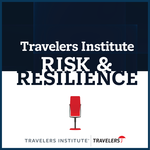
Tune in to “Unlocking Your Potential,” available on Apple Podcasts® and Spotify.
Learn more, explore the most recent episodes and subscribe to the Travelers Institute Risk and Resilience podcast.
Summary
What did we learn? Here are the top takeaways from Unlocking Your Potential: Lessons in Leadership and Influence:
Building influence is key to unlocking your potential. While influence can come from a job title or position of power, most people build and create influence through their actions and by making connections, Kaplan said. Through influence, you can boost your visibility, get your point across and catch the attention of leaders who may be able to hire or promote you, she said. “Influence creates connectivity between us and the people who are at the next rung of the ladder for us,” she said. The habits you practice daily, from your mindset to how you handle setbacks, can either help build or take away from your influence, she said, adding, “How we think about ourselves is key to our ability to create influence.”
Learning to accept feedback with curiosity can help you build influence. Feedback is crucial for gaining support and approval from others for your idea, Kaplan said. Prepare yourself to hear less-than-positive feedback, she said. Her advice: Take the emotion out of feedback. “Make it less about you and more about curiosity about what you can learn from it,” she said.
Embrace a growth mindset to maximize your potential. Mindset is an important part of approaching obstacles constructively, said Kaplan, who advocates for the “growth mindset” described in the book Mindset: The New Psychology of Success, by Carol Dweck, a Stanford University psychology professor. A person with a growth mindset might say, “I’m probably not going to be good at this, but I will get better as I do it,” she said, in contrast to a fixed mindset in which a person tends to stay stuck. Having a growth mindset makes it easier to take risks, boosts confidence and helps you lean into opportunities and next steps, she said.
Know that the messy middle is where the most growth happens. Everyone who tries something new faces a “messy middle” phase, Kaplan said. “The messy middle is the part that most people never see. You’re stretching yourself, it’s uncomfortable and you’re failing, and you’ve got to start over or try a different way,” she said, adding that she went through a “messy middle” when she started her podcast. A lot of people give up at this point, she said, but those who push through the discomfort can reap big rewards. “The messiness is where the biggest growth and learning comes, and also where your confidence gets the biggest boost,” she explained. “Building that confidence muscle then helps you try the next hard thing, and the next hard thing, and the next hard thing.”
Reframe failure as an opportunity to learn and grow. “One of my favorite ways of thinking about failure is to stop using the word,” Kaplan said, adding that we tend to learn much more from failure than from success, meaning it’s one of our best teachers. “If you shift your mindset, it can be an opportunity to reframe and recalibrate failure, to craft a different narrative around this idea of failure,” she said.
Editing your personal story can position you to land your next opportunity. It’s easy to take a setback, such as a job loss, and make it part of your personal narrative, leading to unhelpful patterns of thinking, Kaplan said. But there’s another way: You can edit your story by reframing the setback or failure to set the groundwork for growth. For example, look at what you could have done differently, identify an unexpected benefit or come up with a lesson the situation taught you, she said. “Take what you learned, get rid of the part where you didn’t do so well and just move on,” she said.
Get clear on your unique value to avoid falling into the comparison trap. The first step is to figure out what triggers cause you to compare yourself to others and then identify what you bring to the table that’s uniquely you, Kaplan said. “If we can do the homework of creating more self-awareness about our own value proposition, that’s a great way of reorienting our thinking so that we don’t fall into this trap,” she said, adding that part of doing that work is looking back at your personal story, including setbacks or failures to reframe them as learning experiences.
Consider using AI to help boost your confidence. Believe it or not, AI tools such as Claude and Google Gemini offer a way to get instant feedback that can make you more confident, a topic Kaplan recently covered in her Intentional Iteration newsletter on LinkedIn®. You can feed in your CV, your bio and a few additional details about yourself, along with a job opportunity you’re seeking, and ask AI to list five reasons you’re the right person for that job. Or you can explain that you’re having doubts about your capability to take on a certain opportunity and ask AI for steps to take to address those uncertainties. “That may sound like kind of a crazy thing to do, but these tools are incredible,” she said, adding that AI can be used alongside executive coaches, advisors and your network. AI is simply “part of a toolkit that can boost your confidence.”
Speaker
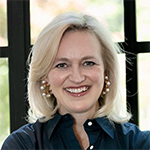
Laura Cox Kaplan
Host/Creator, She Said/She Said Media & Podcast
Host
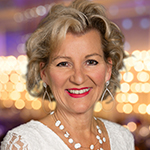
Joan Woodward
President, Travelers Institute; Executive Vice President, Public Policy, Travelers
Presented by
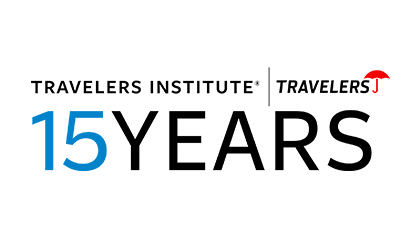
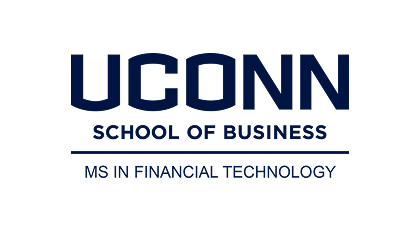
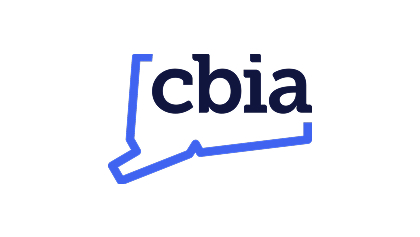
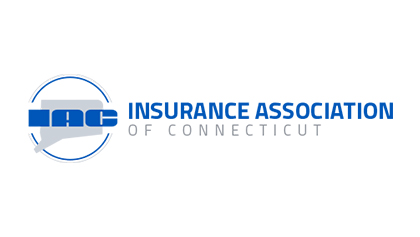
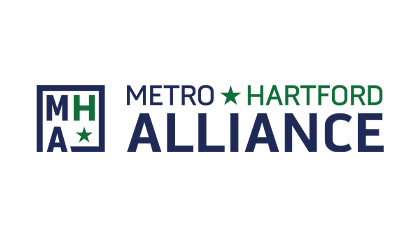
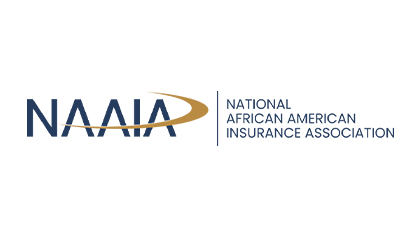
Related content
Find Your Calm: Stress-Reducing Practices for Busy Professionals
Renowned yoga and meditation teacher and bestselling author Rebecca Pacheco explained how yoga and meditation can benefit everyone from athletes to C-suite executives and shared simple movement and meditation practices that can be done anytime, anywhere.
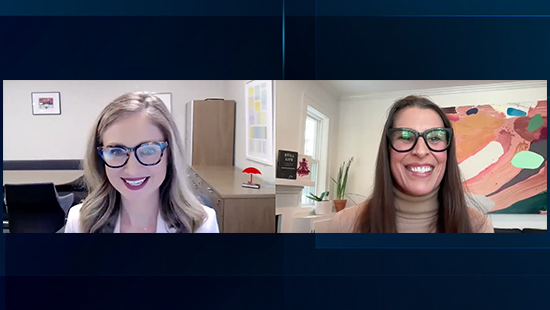
Resilience and Hope: Geralyn Ritter's Story of Survival
How do we find hope and resilience when faced with unimaginable trauma or even everyday challenges? Geralyn Ritter, survivor of a train derailment, joined us to share her journey back to life as mom, wife and CEO.
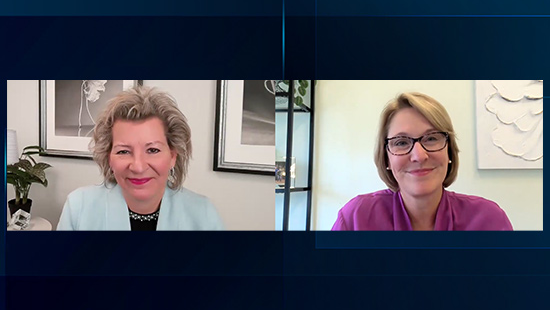
Ripple Effect Leadership: Building High-Trust Teams in a Low-Trust World
Leadership expert Chris Rollins joined us to talk about inclusive leadership, share his Ripple Effect Leadership™ framework and discuss how leading with vulnerability and empathy can transform the workplace.
